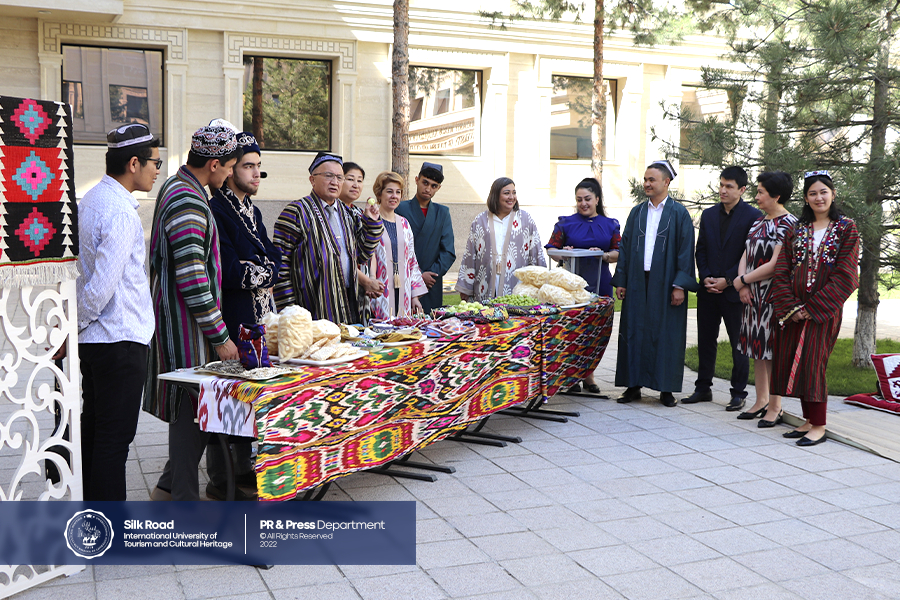Folk games have become a key tool for integrating young people into society and gaining self-esteem. But over the past decade, the folk games that children play have moved to gadgets, and their physical activity is gradually decreasing. With the transfer of games to gadgets, national games will most likely soon become history. On June 2, students of the Event-219 group of the “Silk Road” International University of Tourism and Cultural Heritage and an active young university teacher Nazokat Khamidova organized the Forgotten National Games action. Students with great pleasure played such folk games as “White poplar – blue poplar” (“Oq terakmi – ko‘k terak”), “Who will get who?” (“Kim oladi-ya shuginani-ya?”).
Many types of folk games have practically disappeared since 2010 and migrated to computers and smartphones. Games help young people develop both mentally and physically. The game involves youth in society. This will certainly help young people find their place in society. Because in the game young people become leaders, participants, in the form of a game they can get new knowledge about society and the world. It is interesting that this knowledge is not imposed on young people, it is presented effortlessly. This is the essence of the event.
Games on gadgets can sharpen the imagination, but computer games are practically motionless games. In this form of play, young people act more as an observer.
And even where computer games are developed, people often pay attention to the folklore, literature and art of this nation. We should not just be consumers. We also have our own art, our own folklore.


